Developing classes in preparation for school are today recognized as a necessary component of preschool education of a child and the basis of his further success. Maturity and readiness for the educational process is determined by the main criteria:
- physical maturity,
- basic level of knowledge and
- communicative competence.
For the development of all these components, our club has prepared appropriate courses.
The development of the child in preparation for school, as a rule, parents begin at a more early age. To this end, they conduct homework, attend groups general development. The program of kindergartens - public and private - is also built on the principle of adaptation to future studies. If this has not been done, you should hurry to contact the experts.
Preparation for school 6-7 years - what does it consist of?
The level of physical readiness consists of the maturity of gross motor skills and the readiness of the muscles of the hand to hold a pen or pencil. If the child was engaged before, the acquired skills should be consolidated. If preparatory courses have not been attended before, the lesson for children 6-7 years old should be built more intensively so that there is no “lag” situation from the first days of the school year.
Our center provides preliminary testing, which helps to determine the initial level of knowledge and skills of the student. Taking into account the results that the child will demonstrate, a further learning process takes place.
A lesson for children aged 6-7, aimed at developing a basic level of knowledge, includes getting acquainted with numbers and figures, mastering simple arithmetic operations, teaching the basics of reading. Our teachers introduce children to a range of concepts, which includes natural history, ideas about cultural achievements and other subjects of general knowledge.
A lesson for children 6-7 years old also implies the development of colloquial speech. In our center, an experienced speech therapist helps to achieve the correct pronunciation of sounds, correct the ways of constructing sentences, and, if necessary, correct stress and intonation. At the request of parents, additional individual sessions with a speech therapist.
The premises of our clubs are equipped with bactericidal devices, as well as regularly subjected to wet cleaning, treated with a steam cleaner, disinfected and ventilated, and children with signs of illness are not allowed to attend classes, so you can not be afraid that your child will catch colds from other children.
How do developing classes in preparation for school form psychological readiness?
All classes are held in a friendly environment. Caring teachers with love and respect for the personality of the child help him learn to recognize his needs and communicate them to elders and peers. Naturally, conflict situations are inevitable in any team. In case of disagreements in the developmental classes in preparation for school, pupils are prompted how to resolve the conflict constructively: they are taught to explain themselves to the “opponent” and reach a mutually acceptable solution.
When entering some elite schools, it is desirable to have a wider range of knowledge and skills. Yes, knowledge in English not mandatory for most primary school. However, preparation for a school of 6-7 years in our center may include learning English using a game method that is most accessible to the child as an additional program.
When compiling an individual program for a child, it is important to take into account not only his “passport”, but also the biological age of the pupil and not overload him with unnecessary requirements when preparing for school for 6-7 years.
Preparing a child for school is a burning issue for all parents. At the age of 6, children are enrolled in special classes so that in grade 1 they become the most successful students.
All moms and dads want their child to study well so that he intellectual ability were noted by teachers and helped to successfully master school wisdom. Undoubtedly, the transformation of a kindergartener into a student is a complex process and the desire to help your child is fully justified. However, it is important to understand well what exactly he should be taught before school.
What to teach before school
Modern requirements for first-graders amaze parents, and especially grandparents. Now children should know letters, conduct sound-letter analysis, be able to count forward and backward, understand the composition of numbers and read well. Nothing can be done, children are sent to preparatory courses or work hard at home in order to learn everything they need.
However, very often, behind a rather weighty intellectual baggage, a child hides a complete psychological and speech therapy unpreparedness for school. Experts insist that the ability to adapt in society, developed fine motor skills, attention, memory, imagination, instilled self-care skills and motivation to study in a school environment are much more important for first-graders.
A child's readiness for school primarily includes:
- Developed speech skills. Among children who do not do well in school, there is a very large percentage of those who suffer from one or another speech therapy disorders. It is from here that the roots of such problems as dysgraphia and dyslexia grow.
- Corresponding physiological functions: motor skills, coordination of movements, orientation in space, phonemic hearing.
- Enough level mental development: logical thinking, memory and voluntary attention, motivation for learning, the ability to build relationships with peers and elders.
How to assess your child's readiness for school
It can be difficult for parents to assess how ready a child is for learning. It is not so easy to understand whether the functions of higher nervous activity are sufficiently developed, whether there are violations in speech. Another interfering factor is the substitution of concepts - in most cases, mothers and fathers believe that they need to teach their child letters and numbers, and incorrect staging of sounds or absent-mindedness will go away “by themselves” with age.
It's best to get expert advice. It is he who will be able to identify existing problems and draw up correction plan classes so that the child can successfully master the school curriculum.
Particular attention should be paid to assessing the development of speech. teachers elementary school unequivocally confirm the fact that among the children who are lagging behind in their studies, the majority have certain speech therapy problems.
What to look for when preparing for school:
- Correct pronunciation of sounds.
- Developed coherent speech, large vocabulary.
- Phonemic hearing, the ability to distinguish various phonemes, determine their place in a word.
- Formed grammatical structure of speech. The use of extended sentences, the correct construction of statements, taking into account number, gender and case, well-built word connections in a sentence.
- Word formation skills. The child should be able to change words with the help of suffixes, correctly use diminutive forms of words in speech, build adjectives based on nouns.
- Developed graphomotor skills, the ability to hold a pencil and pen correctly, hatch, outline, etc.
What should parents do
First of all, it is necessary to objectively evaluate all the skills of the child. If any problems are noticeable, as they say, with the naked eye, you should seek help. Age up to 7 years is the most favorable for the correction of speech disorders. With the right approach, your child will be able to catch up with everything necessary and be ready to gnaw at the granite of science quite successfully by the beginning of their studies.
If you decide to attend school preparation courses, it is better to choose the option where the lessons are taught by a professional speech therapist. Such classes include all aspects of:
- development of phonemic hearing;
- training in sound analysis and synthesis;
- formation of the correct grammatical structure of speech;
- fine motor skills training, mastering the skills of shading, drawing, etc .;
- exercises for the development of voluntary attention, memory, thinking;
- learning to read;
- development of competent coherent speech.
If a child needs to correct some speech problems, do not put it off indefinitely. The sooner you start working with a specialist, the easier it will be to succeed. Give your future first grader a chance to become a successful student!
- Be sure to create a positive attitude. Emphasize that the son or daughter is already an adult, that they will do well at school. Don't be intimidated by the "new life".
- Do not focus on speech problems, but be sure to address them. Let the child perceive this as a natural working moment, do not focus on the fact that he is not good at it.
- Create a developing speech environment at home. Children need to hear correct speech. Communicate more, discuss daytime events, ask about everything, encouraging the child to talk more.
- Make time for reading! Even if your child has not yet learned to read, a positive attitude towards books, an interest in learning new things will certainly help him in his studies.
- Learn poetry, practice saying tongue twisters. Don't forget about articulation exercises.
- If your child attends speech therapy classes, be sure to complete all homework and recommendations. Support your future student, celebrate each achievement and praise.
- Pay attention to psychological and physiological readiness. As they say, not by reading alone. Develop self-care skills, the ability to cooperate and follow the instructions of the teacher.
- Don't forget about health. Walks in the fresh air, active games, adherence to the daily routine will help your treasure successfully cope with the entry into a new academic life.
Good afternoon, my dear readers. Today's article will be useful to parents, caring grandparents. Today's topic is: developing classes preparing for school.
This topic is very important for me personally. My next year younger son will go to first grade. Therefore, preparation for school is in full swing.
Of course, it is better to start preparing a child from the age of 4. But if for some reason this did not work out, and the fidget is already 6 years old and will go to school in a year, then do not despair. Better late than not preparing at all.
Patience
Patience and more patience.
- In no case do not shout, do not scold the future student.
It is very easy to discourage the desire to learn, but more difficult to interest.
Try to study when not only the child, but also you are in a good mood. After all, explaining some elementary things (as it seems to us) many times is quite difficult. Therefore, if you understand that you are annoyed, then postpone classes, at least for a while. And during this time, calm down, have a cup of tea or take a walk.
Yes, and during class, if you feel that anger is boiling inside, or maybe despair or anger, then don't lose your temper on your child take a break.

play
Try to conduct developmental classes in game form. I agree that not all parents can come up with something interesting.
But we are adults, smart people.
We just need to strain our heads a little and ideas will definitely appear.
For example, you circle the cells. Let it not be cells, but trailers that are going to go on a long journey. And if you write some squiggles according to the letter, then come up with a name for them with your child.
Learned poems can be told in front of the audience and even if it's just a toy bear or horse.
The main thing is to start dreaming.
If you can't do it yourself, ask your child for help. Maybe he has some ideas.
Don't overload
Don't overload your preschooler. Work out for 15 minutes, then a break for 20 minutes.

But during a break, we don’t go to the kitchen to eat something and we don’t turn on the TV to watch a cartoon, but we play ball, jump on a trampoline or just on one leg. Have a competition to see who can jump longer on their left foot.
alternate
Alternate classes. Read it, then you can draw. Pee, you can sing. Mental, creative. The handles have worked, we are working with the tongue.
Do not hurry
Do not rush to complicate the material. It is better to stagnate for a long time, but to master the material with high quality.
No need to rush.
Let you not have time to do everything according to the schedule. The most important thing is to learn the material well.

Plan
Of course, you need a lesson plan. But it’s not always possible to stick to it clearly. After all, some material will be given to the child easier, some more difficult. Somewhere you will stagnate for a long time, and something you can easily jump over.
fine motor skills
Why develop
Fine motor skills usually refer to the movement of the small muscles of the hands.
I think that it is no secret to anyone that the poor development of fine motor skills of the hands can have a bad effect on the performance of the future first grader.
This can be expressed in a slow writing speed, in the inaccuracy of movements.
The child may not keep up with classmates, and instead of beautiful letters, scary scribbles may appear in the notebook.

And in general, in this way, a negative attitude can develop both to writing and to the educational process as a whole. This is, of course, a complete horror story. I didn't want to scare you too much.
But I think that you are probably engaged in the development of fine motor skills: sculpt and draw with your child, assemble Lego, cut something out. And you can also play finger games, do special exercises.
Video: games for the development of fine motor skills
It takes time, of course, for the fingers to become skillful, and you can’t do without systematic exercises either.
And one more of important conditions for the development of fine motor skills - classes should be interesting, bring positive emotions.
Well, to reinforce interest in the exercises - make sure that the activity is successful.
Finger massage
A pleasant activity not only for the baby but also for the mother.
Stroking, rubbing. The movements are directed from the fingertips to the wrists.
Sit with your daughter or son, watch cartoons and stroke her or his fingers.
Thanks to the massage, the blood rushes to the nerve endings, and this, it should be noted, has a very positive effect on the brain.
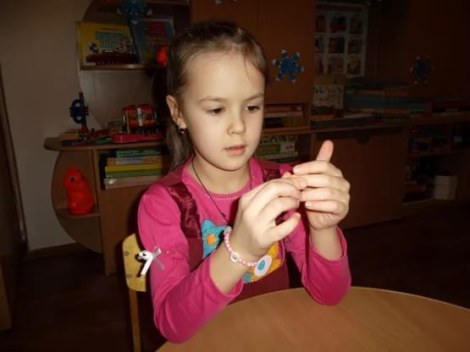
finger games
Finger games contribute to the development of fine motor skills and speech and memory. After all, all movements in games are accompanied by nursery rhymes, rhyming tales. The child needs to remember the position of the fingers, the sequence of movements, and the verse itself. And it's not as simple as that.
Videos finger games
How else to develop fine motor skills
There are many other options for developing fine motor skills.
I'm not going to go into detail about what's next. I'm sure they understand
- Modeling from clay and plasticine
- Classes with beads, buttons, small pebbles
- cutting with scissors
- Lacing
- Origami
- Hatching
- Coloring
- Ornament drawing
- Arrange at home puppet show, shadow play

Memory development
For successful study, it is also necessary to develop the memory of a preschool child.
Surely you memorize poems, songs. All this, of course, contributes to the development of memory. But it can also be developed with the help of various games.
Our favorite game
I want to tell you a little about our favorite board game(more precisely, the floor, we do not have a large table, so we play on the floor). The game is called "Couples".
The rules are simple.
Cards with paired pictures are shuffled and laid out face down. Each game turns over any two cards in turn and tries to remember the picture and its location. If two identical pictures fell out, then the player takes them for himself and opens them again. The one with the most matching pictures wins.
"Couples" in our family got accustomed perfectly. We have sets of pictures on different topics: animals, birds, plants, mushrooms, vegetables, marine life and others. In general, we develop not only memory, but also broaden our horizons.

Games for the development of abstract-figurative thinking
I present to you a few interesting games for the development of abstract-figurative thinking.
What are they needed for?
The fact is that often with the help of images and associations we easily manage to remember something.
The stronger the associative connection of objects, the better and longer we will remember them.
It's entirely possible that the first few games will seem a little weird to you, but they are nonetheless important in pushing the limits of the imagination.
Developing the imagination
Ask the child to draw what his mother's perfume smells like or let him tell you what the clouds smell like. Let him describe how the wind feels or how red sounds. Maxim told me that the clouds smell like the sea.

Associations
Ask the child to name their associations associated with the words you named. Each word may have its own description scheme, but approximately it may look like this: shape, smell, color, texture, weight, taste.
You can name not only familiar words. Let him try to describe his association, including imagination and fantasy. For example, let him describe what philately looks like or what Esperanto smells like.
We revive
Try with a future first grader to revive any object you like. For example, let the boot come to life and tell about his travels.

Application of games
All these games can be used when memorizing verses. You read the line, the child creates his own image and the brighter it is, the better. Then, remembering the image, you can easily reproduce the words.
If a child needs to remember a chain of words that are not related to each other, then try to make a logical connection between the listed words. You can make up a story. And then, remembering the associations, it will be easier to repeat the words.
The more often you play such games, the faster the necessary information will be remembered.
Well, if you need to remember boring dry information, then with the help of a developed imagination it will be easy to “revive” it.
Games for attention
Oh, how often we make mistakes due to inattention. Sometimes it's so annoying.
Therefore, include the item preparation for school activities to develop attention.
And for this you can apply the following games.
Let's sing
You can play with one child, you can play with a group of children.
The rules are simple. The child chooses any song he knows. At the command of the leader, the player begins to sing. If the host claps his hands twice, then the child should sing to himself. If you clap once, then out loud.

If several children are playing, then the leading moment is to clap to any participant. Therefore, at the same moment, some children will sing out loud, some silently.
The one who made a mistake has lost and this player becomes the leader.
Here's another fun one
"Yes" "No" do not say
The rules are clear from the name: the child is asked a question, and he must answer it without using “yes” or “no” in the answers. The task of the presenter is to ask a question in such a way that, well, I really want to answer incorrectly.
For example, is your name... (child's name)?
Do you love the sea?
You can swim?
Do you sleep at night?
Do you like bananas?
And similar

We learn letters. Learning to read.
For me personally, teaching children to read is one of the exciting moments. It can even be compared with the first spoken words, the first independent steps. It's just a wonderful moment when you see how your child reads the first words. I remember how the youngest son was himself simply in shock when he realized that he had learned to read. I still remember his surprised joyful eyes.
Learn the vowels, A, O, U, S, I are enough to start, the rest can be a little later. Of the consonants, you can start learning with M, P, S, T, W, N, L, and you can already start reading syllables and words with learned letters.
Adults, I think, understand the difference between a sound and a letter. For preschoolers, the difference can not yet be explained. But remember that when we learn consonants, then call them not as in the alphabet “EL”, “EM”, “EN”, but “L”, as in the word count, “M” as in the word ladies, “N” as in the word is given.
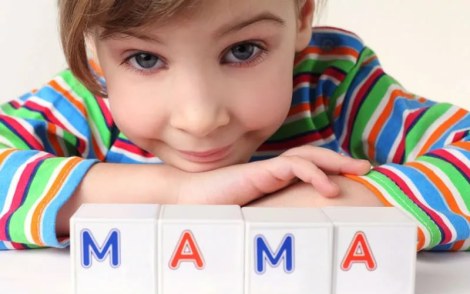
There are many games to learn letters. You can buy or you can make your own. For example, I bought two identical sets of letters, cut them and we played with them in "Couples". Above I described the rules.
Other games can also be played using letter cards.
For example, put several cards in a row, let the child say the letters and close his eyes. In the meantime, you hide one card. The player's task is to name the missing letter. You can swap the cards and then the task is to guess which letters are rearranged.
You can take text in large print and ask the child to underline (cross out, circle) a certain letter. You can complicate the task: ask one letter to cross out, circle the other.
Video how to teach a child to read by syllables
Math Games
There are many gaming activities for the development of mathematical abilities of preschoolers.
I bring to your attention a few of these games.
geometric mosaic
This activity develops mindfulness, fine motor skills, teaches to compare parts by color and shape
From colored paper or cardboard, cut out different geometric figures.
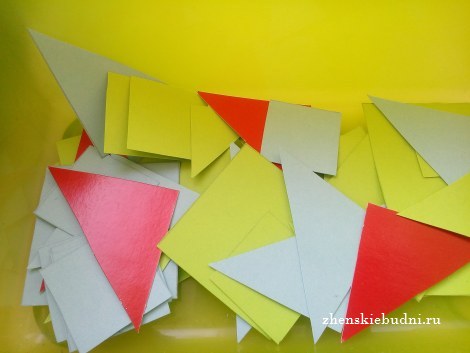
We also prepare cards with various objects, for the creation of which geometric shapes are used. The task is to create a model according to the sample.
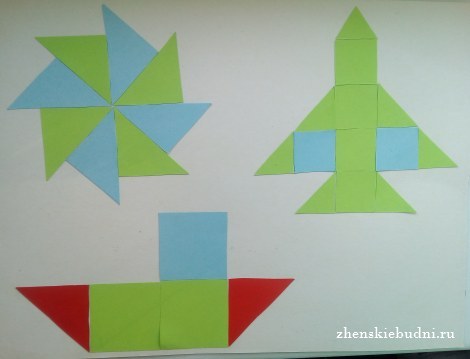
Here is another example.

You can organize a similar lesson using counting sticks, cubes. From sticks (cubes) you make some kind of figure, the child must repeat.
Where is the mistake
Various toys, cubes, even natural material (cones, acorns) can serve as a material. And you can use all the same geometric shapes made of cardboard.
We compose a logical sequence of objects.

Then the child closes his eyes, and the adult at this time either rearranges something or removes some object. Well, the player must guess what has changed, where the error appeared in the sequence.

This game is more reckless if several children participate in it. Then the spirit of competition makes the brain work faster.
Draw by numbers
Gradually increase the difficulty of this task. But start with the simplest.
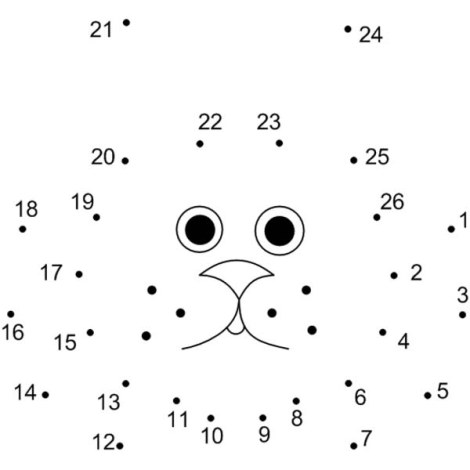
- Teach your child to count backwards
Explain to the future student the composition of the number. Of course, this will take place in math classes. But knowing now the composition of the number, it will be easier for a preschool child to solve examples.
Count everything. Draw, count how many pencils or felt-tip pens you have, watch a cartoon, count how many characters.
I sincerely hope that the tips I gave in this article will be useful to you. Of course, it is not easy to prepare a child for school, but I am sure that you will succeed.
